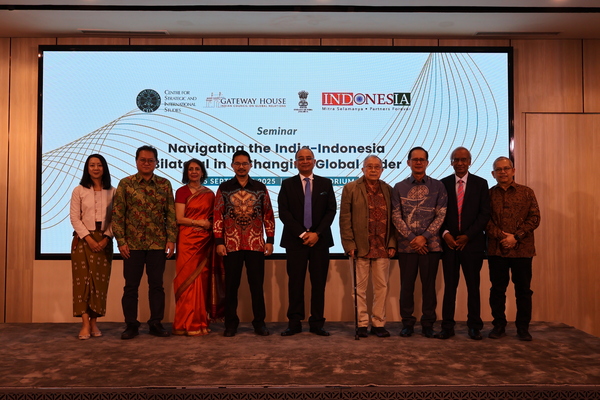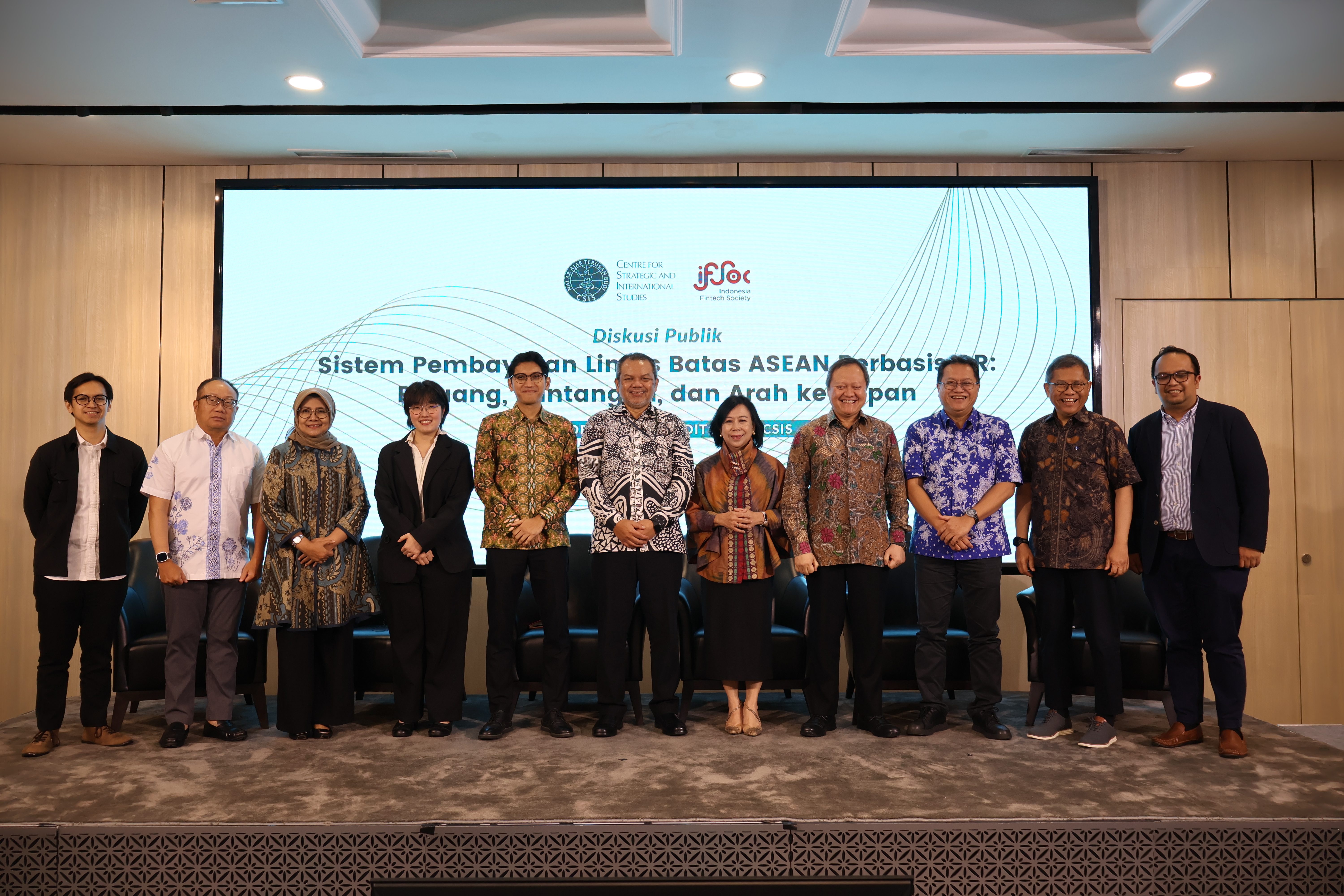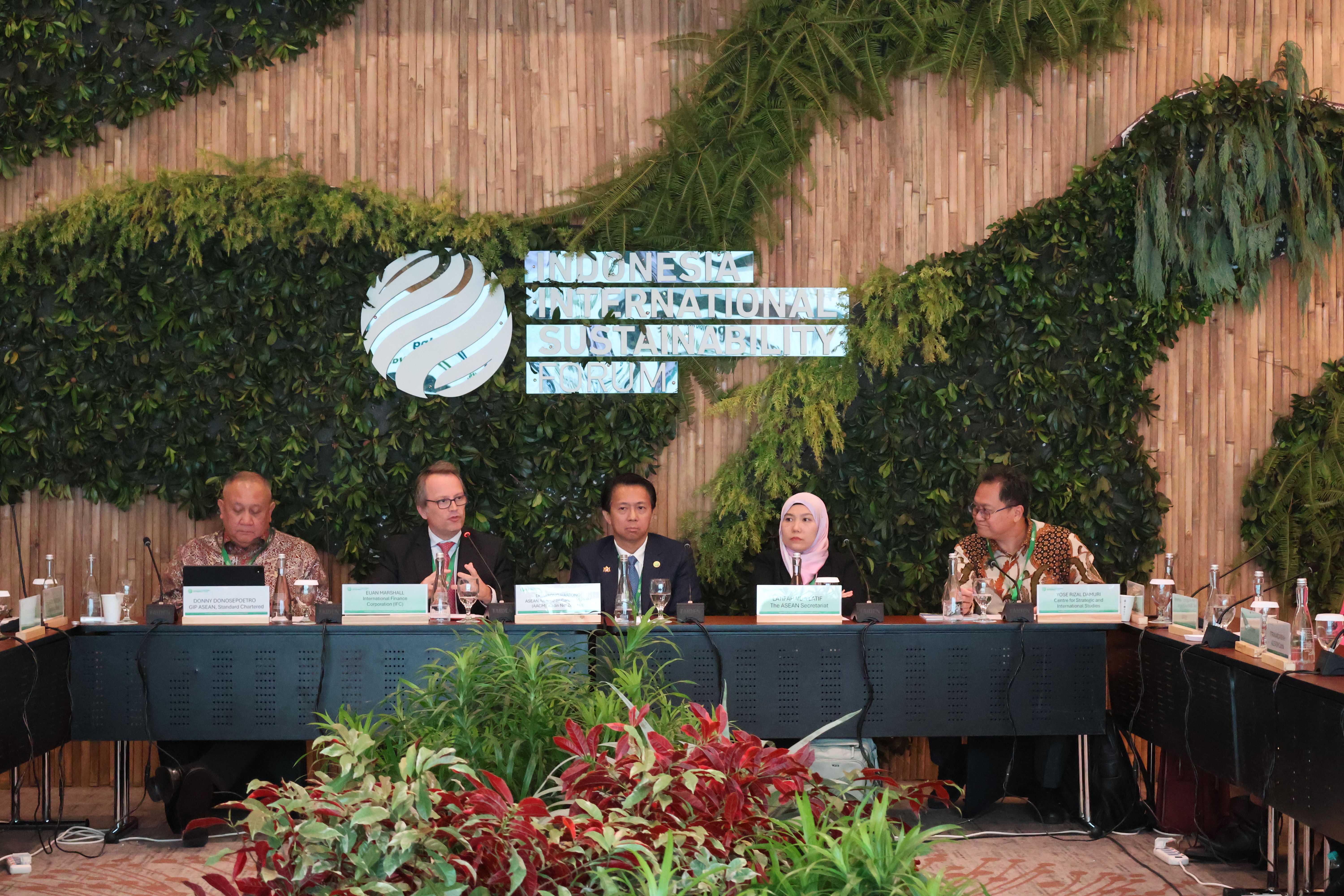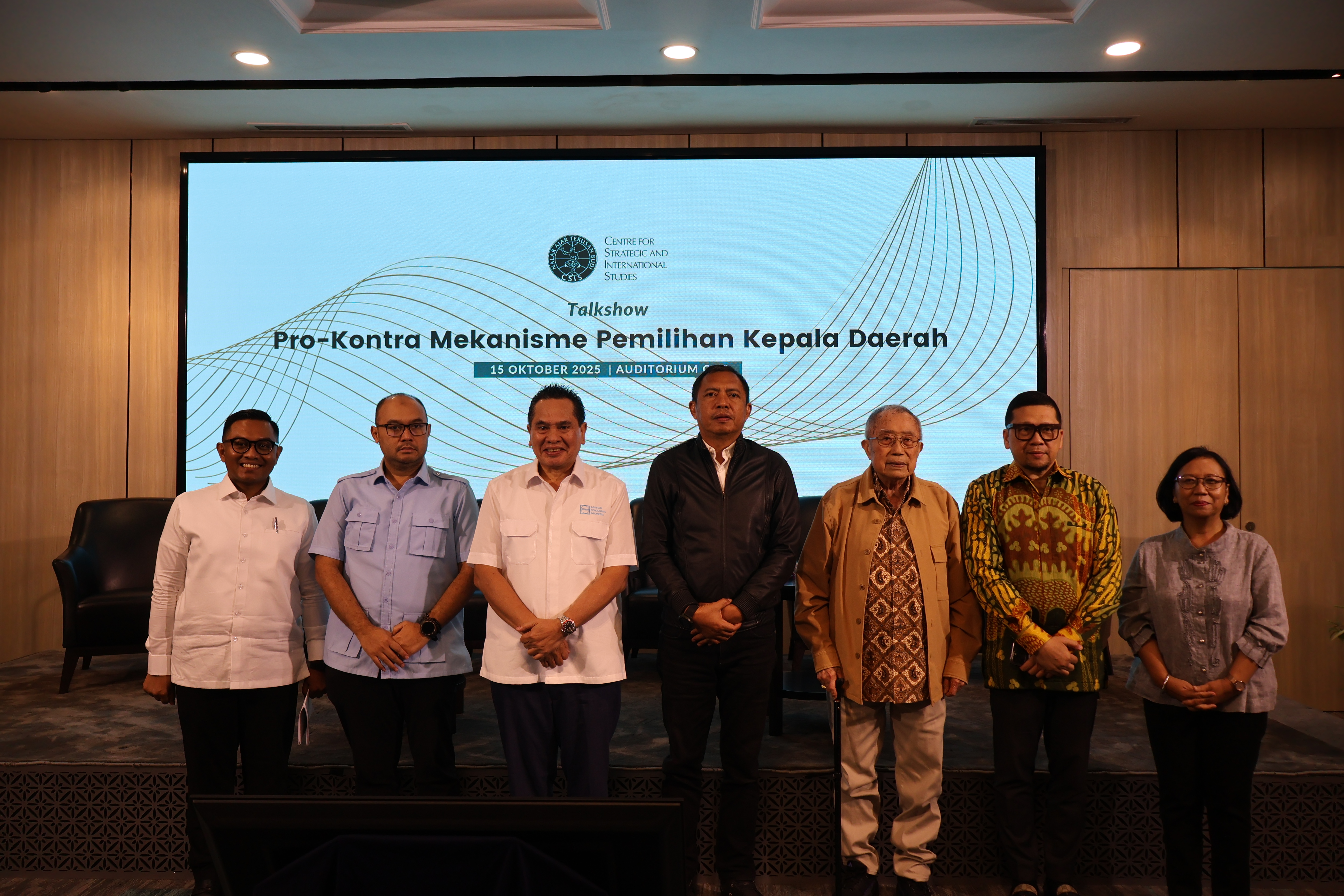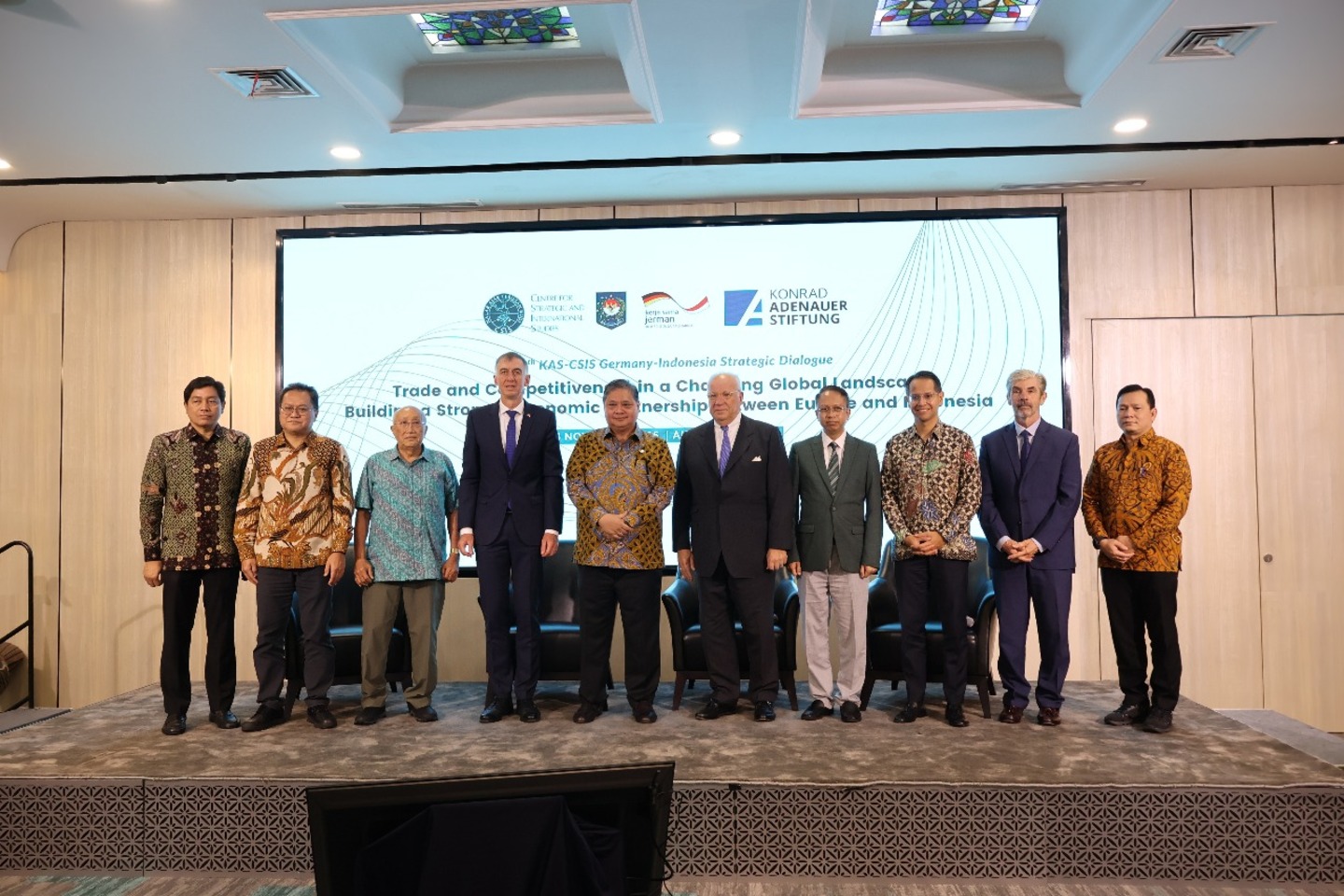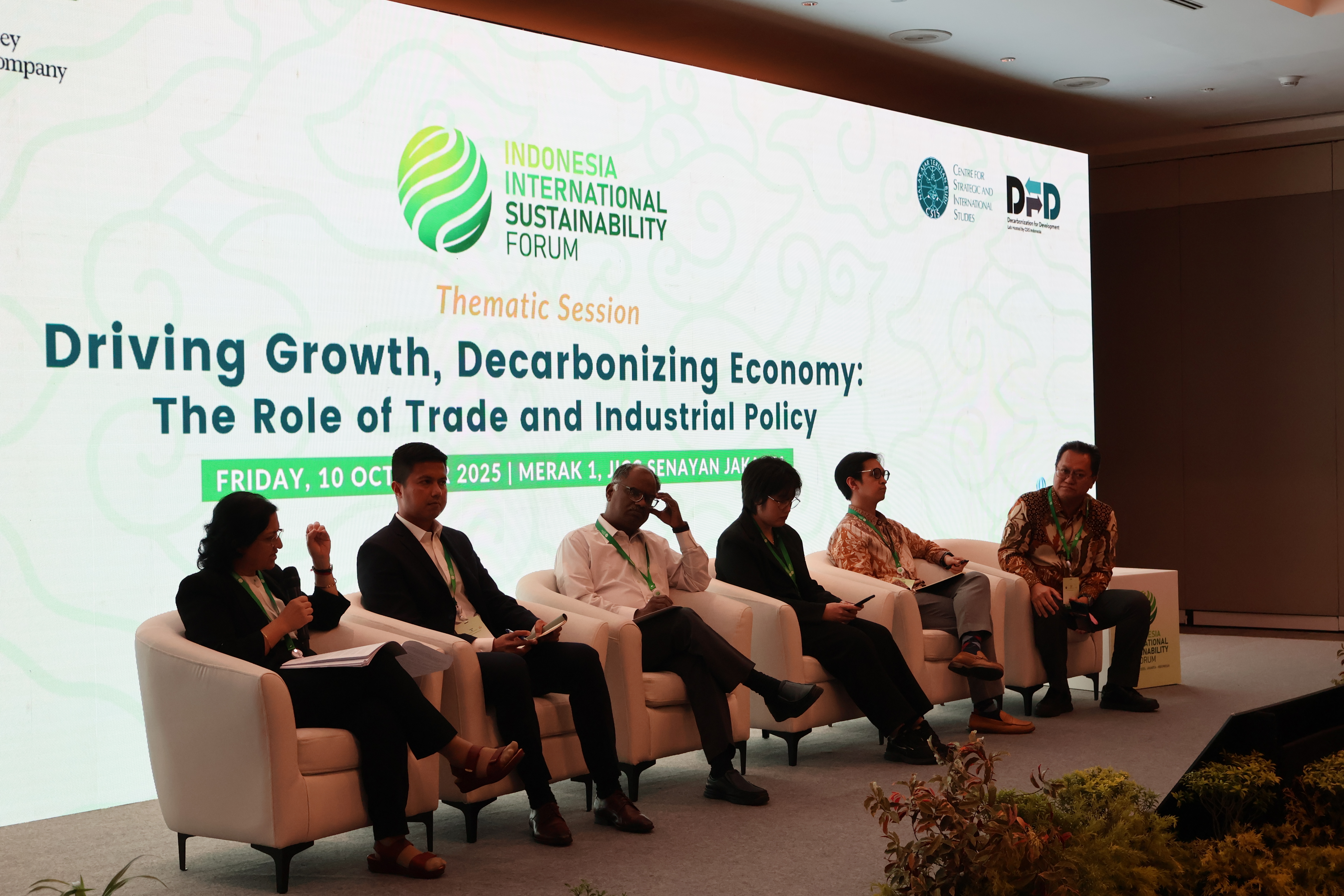
Jakarta, October 10, 2025 — The Centre for Strategic and International Studies (CSIS) Indonesia and the Decarbonization for Development (DfD) Lab successfully held a thematic session titled “Driving Growth, Decarbonizing the Economy: The Role of Trade and Industrial Policy” as part of the Indonesia International Sustainability Forum (ISF) 2025 at the Jakarta Convention Center (JCC).
The session brought together regional and international experts to discuss how trade and industrial policy can drive sustainable growth and accelerate decarbonization across Southeast Asia. The dialogue underscored the need for coordinated policy frameworks, inclusive green transformation, and cross-border collaboration to ensure economic competitiveness in the era of global climate transition.
Key Highlights:
Rupa Chanda, Director of Trade, Investment, and Innovation, UNESCAP, highlighted that industrial production and consumption account for around 54% of global greenhouse gas emissions, underscoring the urgent need to shift toward greener production models. She called for policies that integrate sustainability into industrial operations and trade systems. She emphasized that while technical standards are vital for maintaining quality and safety, they can sometimes create barriers to trade, particularly for developing economies. Trade policies, therefore, should aim to mainstream sustainability and enhance inclusivity.
She also addressed the challenges faced by small and medium-sized enterprises (SMEs) in adopting green technologies, citing limited access to finance and resources as key barriers. She encouraged the creation of enabling environments that make green technologies and financing more accessible to smaller players. Digitalization and strong infrastructure, she added, can accelerate green trade by enhancing efficiency and transparency, provided these tools remain inclusive, interoperable, and accessible for all.
Harry Wardana, Research Fellow, Jean Monnet Centre of Excellence in Trade and Environment, University of Adelaide, discussed the global shift from “carbon leakage” to “low-carbon leakage,” where industries increasingly relocate not to evade carbon costs but to regions with cleaner and more efficient technologies. He explained that carbon and industrial policies are complementary pillars of decarbonization. Carbon policy creates the demand for emission reduction through mechanisms like pricing and taxation, while industrial policy provides the means through innovation, R&D, and technology scaling.
Citing the EU’s Carbon Border Adjustment Mechanism (CBAM), Harry noted that such border-focused policies are reshaping trade and investment patterns worldwide. He stressed the importance of policy interoperability, aligning standards and incentives across countries to avoid new trade barriers. He concluded that global cooperation and clear market signals from industries and consumers alike are crucial to accelerate the transition toward low-carbon industrial systems.
Venkatachalam Anbumozhi, Senior Research Fellow, ERIA, emphasized ASEAN’s active role in the green transition, noting that while economic growth has decoupled from emissions to some extent, decarbonization remains complex and uneven across the region. He discussed how trade-related mechanisms such as CBAM will affect ASEAN exporters particularly in energy-intensive sectors like steel, cement, and manufacturing, and urged regional policy harmonization to support competitiveness.
He underscored the importance of technology access and innovation as key enablers for successful decarbonization, citing Japan’s experience in industrial collaboration and clean technology development as a model for ASEAN. Venkatachalam concluded that ASEAN must strengthen institutional coordination, capacity building, and financial mechanisms to support firms, particularly SMEs, in adapting to the changing global carbon landscape.
Patcha Thamrong-ajariyakun, International Institute For Trade and Development (ITD), Thailand, explored the balance between economic growth and environmental sustainability, questioning whether nations have been “growing at the cost of the world.” She noted that global energy-related CO₂ emissions reached 37.8 gigatons, much of it linked to international trade and logistics. She outlined historical emission trends, explaining that while developed regions such as the EU and the United States have started to decouple emissions from growth, ASEAN economies remain in earlier stages of the environmental transition.
Patcha highlighted Thailand’s commitment to achieving Net Zero, supported by a forthcoming Climate Change Bill, renewable energy investment, and a national electric vehicle (EV) agenda. However, she acknowledged that SMEs still face difficulties in tracking emissions and meeting green standards, even as consumer demand for sustainable products grows. She concluded that Thailand’s experience shows that government and private sector collaboration is key to building a resilient, green, and trade-oriented economy.
Dandy Rafitrandi, Senior Researcher, CSIS Indonesia, shared that Indonesia’s green and environmental goods exports are growing rapidly, signaling positive momentum for sustainable trade. Yet, he noted that Indonesia still lags behind regional peers such as Vietnam in trade competitiveness and industrial diversification. He cautioned that climate-based trade measures, including CBAM and emerging regulations in the United Kingdom and Australia, could affect Indonesia’s energy-intensive sectors if domestic industries fail to align with global standards.
Dandy outlined proposed CSIS’ three-pillar framework for improving Indonesia’s readiness for climate-related trade transitions:
- Improve compliance and reform infrastructure, regulation, and implementation.
- Strengthen export policies to respond to global low-carbon economic shifts.
- Advance energy transition to reduce domestic emissions while maintaining competitiveness.
He emphasized that policy coherence across ministries and sectors is essential to ensure Indonesia’s decarbonization efforts support both sustainability and growth.

